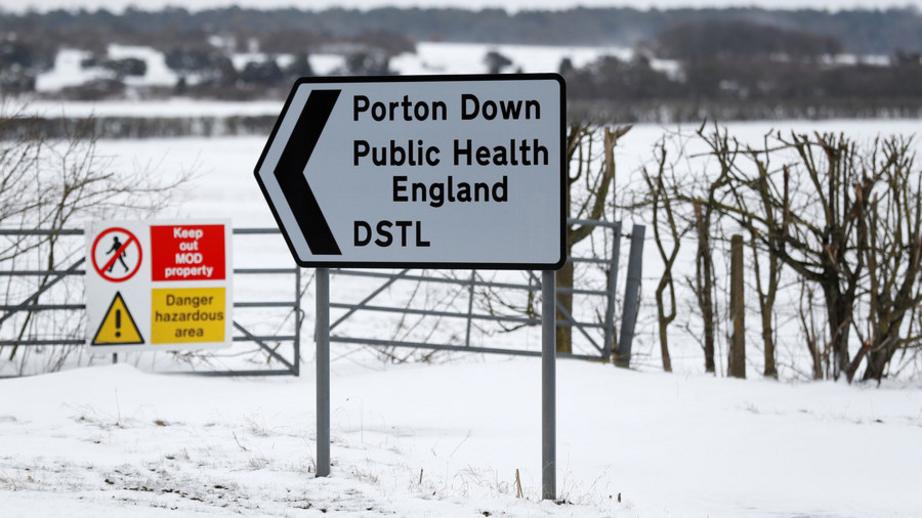Salisbury nerve agent attack reveals $70 million Pentagon program
... at Porton Down
Dilyana Gaytandzhieva is a Bulgarian investigative journalist and Middle East Correspondent. Over the last two years she has published a series of revealing reports on weapons smuggling. Two months ago South Front published her investigation into the Pentagon bio laboratories in 25 countries across the world. Her current report provides an overview of the Pentagon-funded experiments at the secretive UK military laboratory Porton Down near Salisbury, where an ex-Russian spy and his daughter were allegedly poisoned with a nerve agent.
By Dilyana Gaytandzhieva exclusively for SouthFront
The Pentagon has spent at least $70 million on military experiments involving tests with deadly viruses and chemical agents at Porton Down – the UK military laboratory near the city of Salisbury. The secretive biological and chemical research facility is located just 13 km from where on 4th March former Russian spy Sergei Skripal and his daughter Yulia were found slumped on a bench following an alleged Novichok nerve agent poisoning.
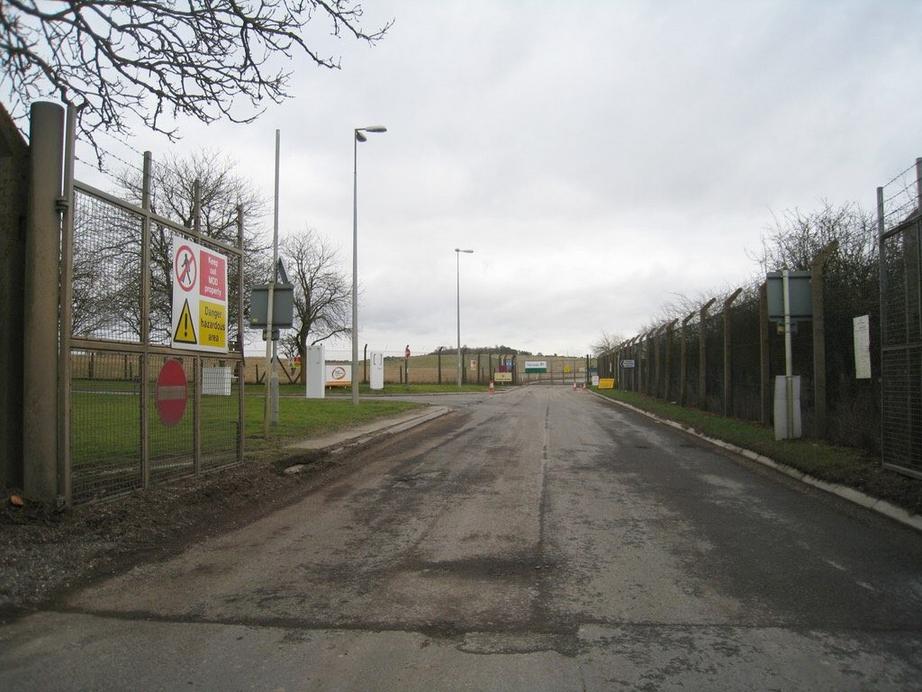
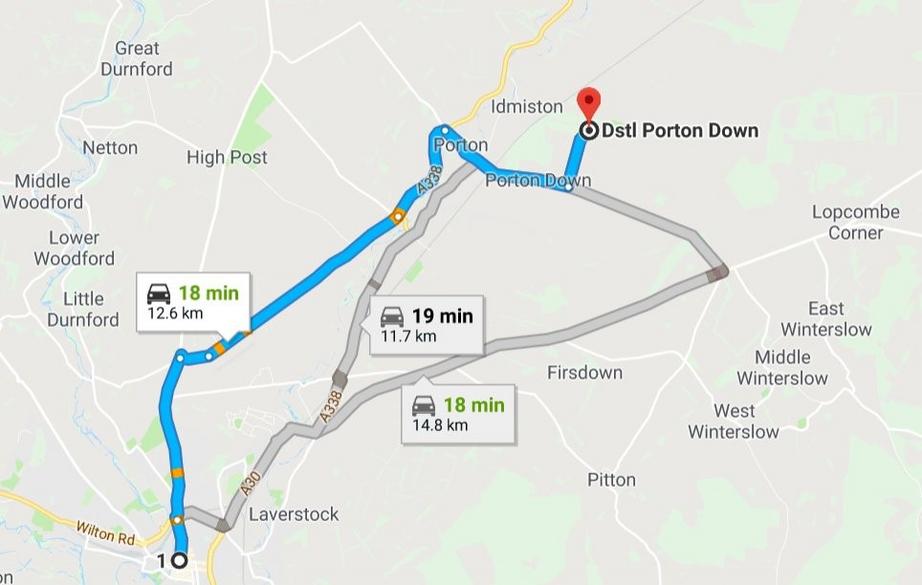
The Porton Down Lab is located just 13 km from the site where Sergei Skripal and his daughter were found and from where they were rushed to hospital.
Information obtained from the US federal contracts registry reveals that the Pentagon’s Defense Threat Reduction Agency (DTRA) has funded a number of military projects performed at the UK Defence Science and Technology Laboratory (DSTL), or Porton Down, over the last decade. Among them: experimental respiratory infection of non-human primates (marmosets) with Anthrax, Ebola virus, Marburg virus, Venezuelan equine encephalitis virus, Western equine encephalitis virus, and Eastern equine encephalitis virus. The US Defense Threat Reduction Agency (DTRA) has also funded experiments on animals which were exposed to chemical agents such as Sulfur Mustard and Phosgene gas. Phosgene gas was used as a chemical weapon during World War I where it was responsible for about 85 % of the 100,000 deaths caused by chemical weapons.
DTRA has also been granted full access to DSTL scientific and technical capabilities, and test data under a 2011 contract for the collaboration and exchange of scientific and technical capabilities with the UK Ministry of Defence.
At least 122,000 animals used for military chemical and biological experiments at Porton Down
Animal experiments are classified as confidential in the UK. Under section 24 of the Animals (Scientific Procedures) Act 1986, it is a criminal offence to disclose certain information about animal experiments in the UK.
Data obtained via the Freedom of Information Act though gives an idea of the dimensions of military chemical and biological experiments carried out at Porton Down. A total of 122,050 animals have been exposed to deadly pathogens, chemicals and incurable diseases over the last decade (2005-2016).
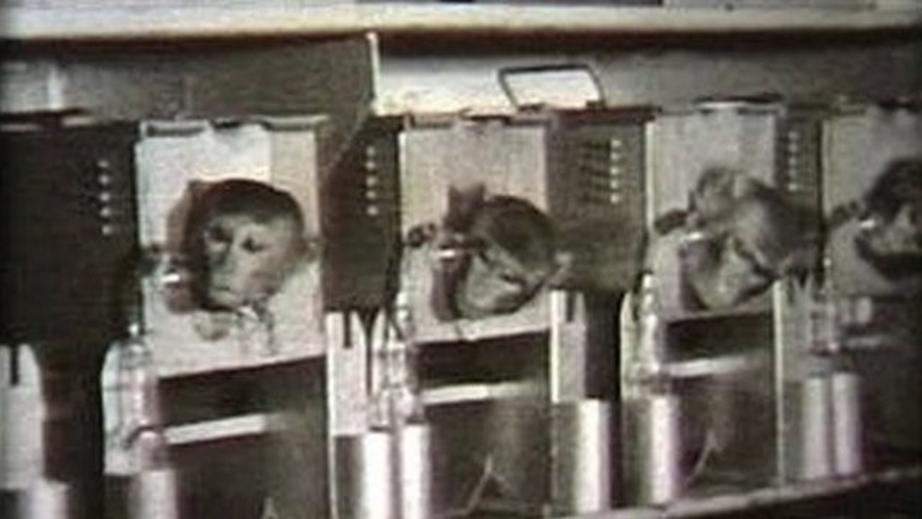
Monkeys being used in warfare agent testing at Porton Down in the past
Animals used include mice, guinea pigs, rats, pigs, ferrets, sheep, and non-human primates. Some of the deadly experiments have been sponsored by the Pentagon under contracts between DSTL and DTRA. Scientists at Porton Down have infected, or poisoned, animals in order to measure time to death and lethal dose of exposure. In practice, the possible use of the researched virus/chemical gas as a weapon.
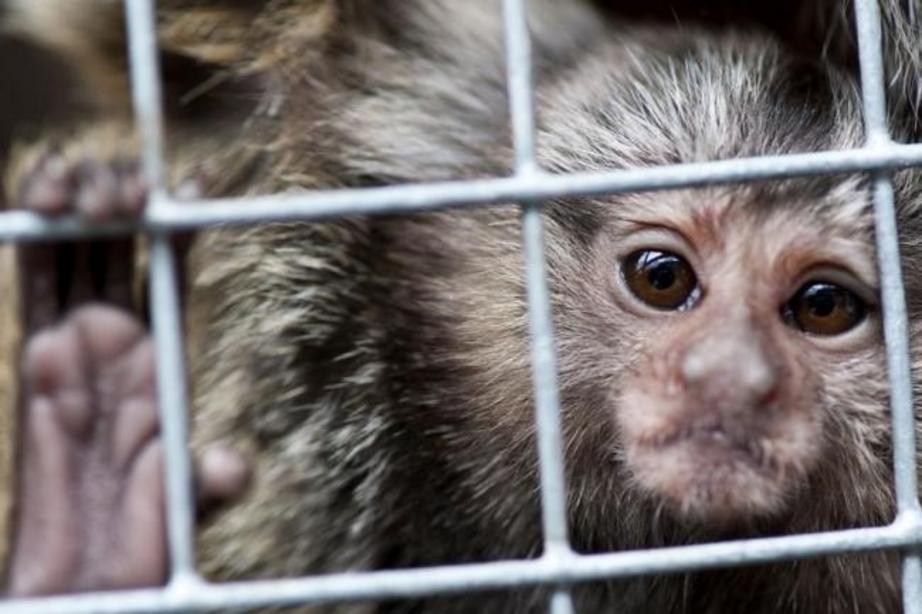
Marmoset monkeys are experimentally infected at Porton Down with Ebola, Anthrax, Marburg Virus and other deadly pathogens. Scientists measure time to death and lethal dose of exposure to the bio agent. Photo credit: Vic Pigula
Ebola as bioweapon
12 Marmoset monkeys were experimentally infected with the Ebola virus, via aerosol, at Porton Down under a Pentagon-funded project – Experimental respiratory infection of marmosets with Ebola virus Kikwit (the Zaire strain of the Ebola virus which killed more than 245 people in Zaire, now Democratic Republic of Congo, in 1995). The project was part of a $6.3 million DTRA program running at Porton Down from 2012 to 2016 – Development of common marmoset models for category A/B pathogens and product evaluation in marmosets.
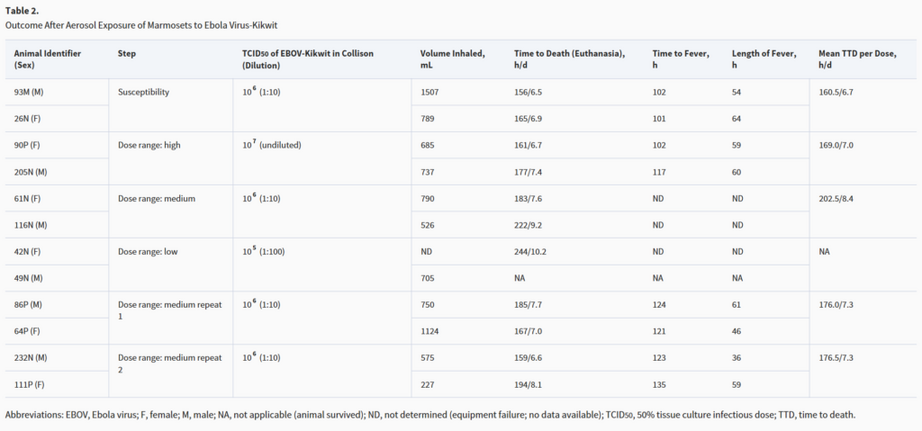
Source: Experimental Respiratory Infection of Marmosets (Callithrix jacchus) With Ebola Virus Kikwit, The Journal of Infectious Diseases, Volume 212, 1 October 2015
The experiment’s stated goal was to measure the lethal dose of exposure and time to death meaning that the Ebola virus Kikwit was researched for its potential as a bioweapon. All infected marmoset monkeys died from 6 to 10 days after exposure to the Ebola virus.
The Pentagon also funded studies on the deadly Marburg virus: a $2.6 million project – Experimental respiratory Marburg virus haemorrhagic fever infection in the common marmoset, and another $1.4 million project – Marburg virus model development, which were undertaken at Porton Down in 2017. This virus causes viral hemorrhagic fever and is listed as a Category A Bioterrorism Agent. All infected monkeys died from 8 to 10 days. The aim of the studies was to examine the dose and time to death for animals exposed to aerosolized Marburg virus.
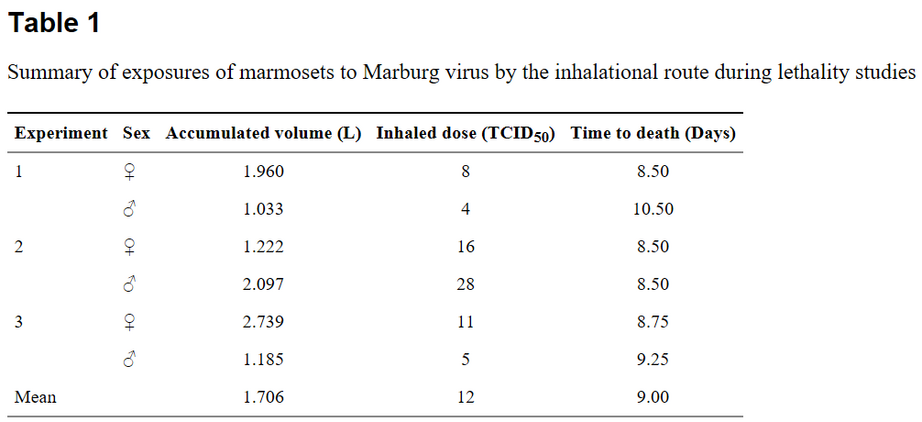
Source: Experimental respiratory Marburg virus haemorrhagic fever infection in the common marmoset (Callithrix jacchus), International Journal of Experimental Pathology
Under another $4.8 million project, funded by DTRA, Porton Down scientists along with the Pentagon contractor Mapp Biopharmaceutical tested Susceptibility and lethality of Western Equine Encephalitis Virus in mice when infected by the aerosol route. Mapp Biopharmaceutical is an American pharmaceutical company, which has developed an Ebola vaccine from the tobacco plant. According to the study, aerosol infection is the likely route of exposure to Western Equine Encephalitis Virus in a biowarfare scenario.
12 Marmoset monkeys were infected with anthrax at Porton Down during an experiment funded by the US Defense Advanced Research Projects Agency (DARPA). The study, Experimental respiratory anthrax infection in the common marmoset (Callithrix jacchus), aimed at determining the lethal dose needed to kill 50% of the animals or the so called LD50 indicator. The value of LD50 for a substance is the dose required to kill half the members of the tested population after a specified test duration. Six of the monkeys died from anthrax from 40 to 140 h.
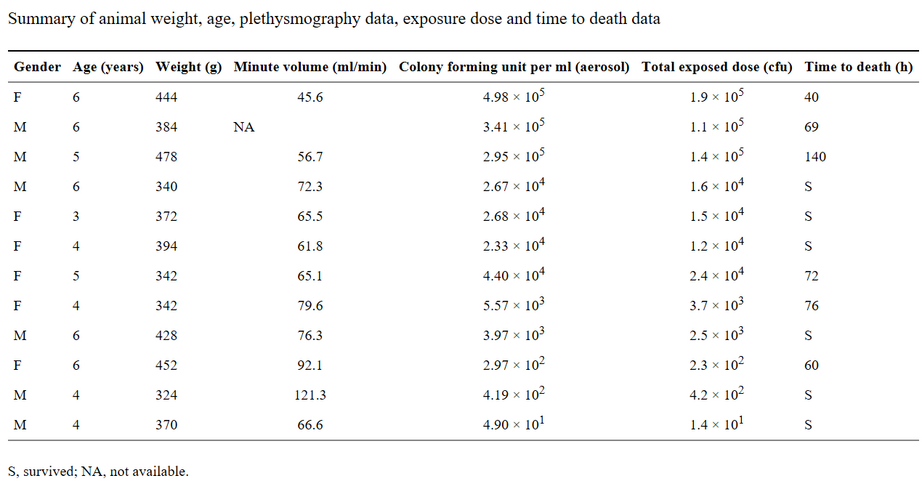
Source: Experimental respiratory anthrax infection in the common marmoset (Callithrix jacchus), US National Library of medicine
Chemical agent tests
British military scientists were funded by DTRA to perform Chemical Agent system testing as part of a $39.7 million Pentagon program (2012-2017) at Porton Down. Documents prove that the US Department of Defense Agency – DTRA funded animal experiments with chemical agents at the secretive British military lab.
In 2016 Porton Down scientists along with their colleagues from the US Army Medical Research Institute of Chemical Defense published the results of a joint study Acute Gene Expression Profile of Lung Tissue Following Sulfur Mustard Inhalation Exposure in Large Anesthetized Swine. According to the funding information, this work was supported by two contracts with the Defense Threat Reduction Agency (US Department of Defense). During the experiment at Porton Down 16 pigs were exposed to mustard gas for about 10 minutes, at 12 h post exposure the animals were killed (three of them died during the experiment due to complications) and a full post-mortem examination performed in order to determine the lung damage caused by the sulfur mustard inhalation.
Sulfur mustard is a chemical warfare agent that was first used on the battlefield in World War I. It has been classified as a Class 1 human carcinogen, meaning that it can also cause cancer. Mustard agents were regulated under the 1993 Chemical Weapons Convention as substances with no use other than in chemical warfare.
The last use of Sulfur mustard in battle was confirmed in Syria in 2016. According to the BBC, Islamic State (ISIS) jihadists used mustard gas against government forces in Deir-ez-Zor. The same chemical gas was confirmed to have been used by ISIS against Kurds in Northern Iraq. According to The Independent, the Organisation for the Prohibition of Chemical Weapons (OPCW) confirmed that laboratory tests had come back positive for sulfur mustard, after around 35 Kurdish troops fell sick on the battlefield in August 2015.
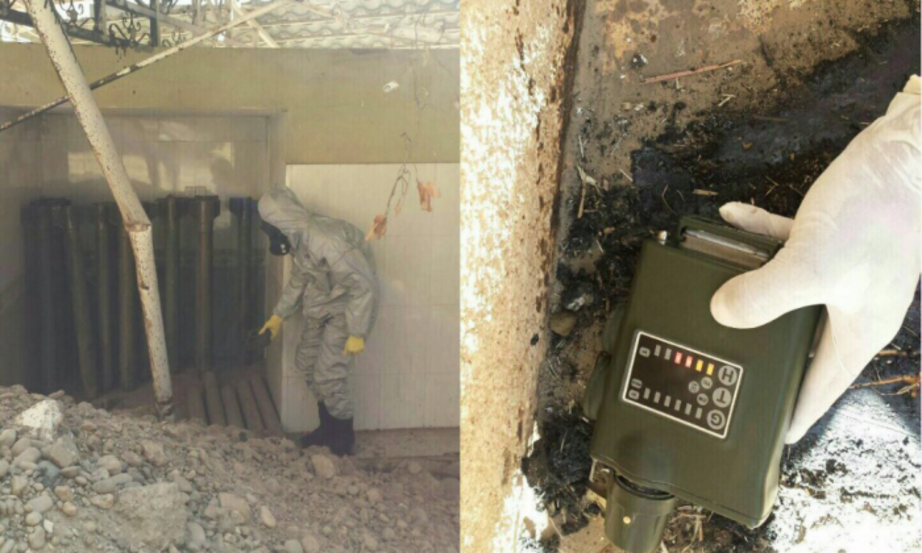
Iraqi soldiers captured a cache of chemical weapons from ISIS in Qayarah, Iraq, the rockets tested positive for sulfur mustard, October 2016. (Source: Ed Alexander/BLACKOPS Cyber)
According to information obtained from the US Federal contracts registry, Porton Down scientists 5 months ago completed a $ 2 million military program involving chemical gas experiments on animals. This program was funded by the US Department of the Army on behalf of the U.S. Army Medical Research Institute of Chemical Defense (USAMRICD) and was launched in 2008 and further extended in 2012. The work on the program included Phosgene Gas tests. Amongst them – Continued Model Development to Establish Reproducible Phosgene Injury at 24 Hours. According to the program documents, the purpose was to monitor the development of acute lung injury following phosgene exposure. Phosgene gas was used extensively as a chemical weapon, most notably during World War I.
Coincidence: Guinea pigs at Porton Down and at the home of the poisoned ex-spy
Tests using nerve agents VX and VM on guinea pigs were carried out at Poton Down in 2015. The project was funded by the UK Ministry of Defence. Interestingly, ginea pigs were also found at Sergei Skripal’s home in Salisbury, just a few kilometers away from the secretive chemical and biological military lab. A photo of the Skripals’ pets – a cat and guinea pigs, was posted by his daughter Yulia on Facebook.

Sergei Skripal and his daughter Yulia, photos: Facebook
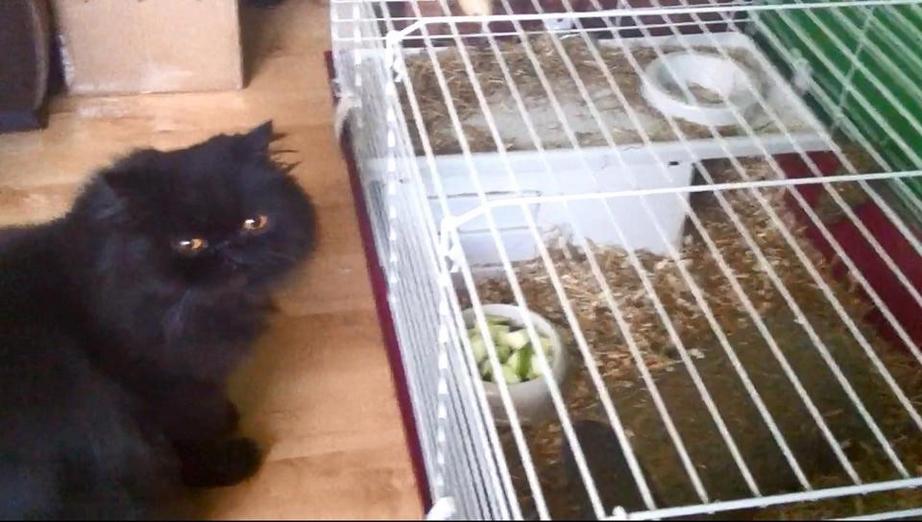
Guinea pigs were found in the house of the poisoned ex-spy in Salisbury, just a few kilometers away from Porton Down, where such guinea pigs were used for nerve agent chemical tests.
In a 2015 report to the UK parliament the UK Ministry of Defence does confirm the use of animals for military chemical and biological experiments. The ministry states: “DSTL is proud to deliver cutting-edge science and technology for the benefit of national defence and security. Part of its work is to provide safe and effective countermeasures against the threat posed by chemical and biological weapons and to enhance the treatment of conventional casualties on the battlefield, which could not currently be achieved without the use of animals”.
Porton Down scientists test chemical gas on London Tube passengers
Chemical gas was released on thousands of unsuspecting commuters during a military experiment on the London Underground, documents reveal. These chemical tests were performed in 2013 by scientist from Porton Down.

Porton Down scientists released chemical gas on the London Underground in 2013.
The UK government never informed the British public of the military experiment on the London Underground. Thousands of people were exposed to chemical gas without their knowledge. Nor did the Ministry of Defence ask for their consent to participate in such military experiments. Information about the project can be obtained from a 2016 US Department of Homeland Security (DHS) document entitled Environmental Assessment of Proposed NYC Subway Tracer Particle and Gas Releases for the Underground Transport Restoration Project.

